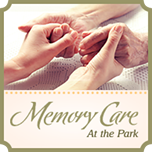We understand how difficult it can be when assessing an aging loved one. It’s even more difficult having that conversation. However, if you do need a little help knowing when your loved one may need to move into a Personal Care or Memory Care community, take a look below. These are the warning signs that can help indicate when it’s time. They are as follows:
Difficulty with the Familiar
Have you noticed a parent or loved one struggling with familiar tasks they used to do with ease? Perhaps they had a special recipe they always liked to cook? Or maybe there was a specific way they cleaned the house, but are now struggling to remember the right way. If this is the case, it may mean they’re struggling to maintain their independence due to cognitive decline.
Some people believe that this is just another part of aging and there’s nothing anyone can do about it. That’s not the case. Cognitive decline can be prevented and even reversed as we age. Older adults just require more mental activity and stimulation than a person who is younger. That’s why, when you notice some mental decline, it’s best to think about an assisted living situation.
Your parent or elderly loved one will not be isolated in their own home. They’ll be apart of a community in which they share similar interests with everyone, partake in activities, and keep their minds active and stimulated. It’s a great way to keep their minds sharp and their hearts young!
Cluttered Home
If you notice your loved one’s house is messy, it may be a sign that it’s time for them to move out. A house requires a lot of upkeep. The carpets needs to be vacuumed, dishes have to be cleaned and put back in the cupboards, hardwood floors should be mopped, etc., etc. It’s a lot of work for anyone and, it can grow to be too much for an elderly loved one.
You may see a bunch of dirty dishes in the sink or piles of clothes lying around the house. Ask them about it. Get to know their thoughts on what it’s like living in their own home. They may flat out tell you that they don’t like it. That’ll make your job a lot easier when deciding on whether they should move to a retirement community. They may tell you that everything is fine and you just caught them on an off day, but it’s important to be stern yet compassionate with them. Let them know that you want to help.
Losing Weight
If a parent or loved one is experiencing noticeable weight loss, it could stem from a number of problems.
- They can no longer cook
- They no longer have an appetite from their medicine
- They have depression
These three things are serious problems. For instance, if a parent or older loved one is having mobility problems, leading them to cook less, that results in more takeout food which isn’t as healthy as home cooked meals. It may also mean that they’re just not eating at all, receiving fewer nutrients to keep them happy and healthy.
The second problem, their medicine reducing their taste buds abilities, can result in a loss of appetite. This will also keep a senior from eating as much as they should, causing them to take in fewer vitamins and nutrients that they need.
Thirdly, if a senior loved one has depression, not only do they eat less, but they’ll be reluctant to partake in any of their favorite activities. If so, a senior community is perfect for them. It keeps them from getting lonely, a common side effect of depression.
As we mentioned earlier, they’ll be placed into a community that is welcoming and shares similar interests in the activities your loved one likes to do. They will no longer have extraneous tasks to keep their living quarters tidy, meals will be prepared for them, and they’ll have the loving support of the workers and community surrounding them. Therefore, if you’ve noticed some of these warning signs in your parent or loved one, it might be best to start talking to them about an assisted living community.











